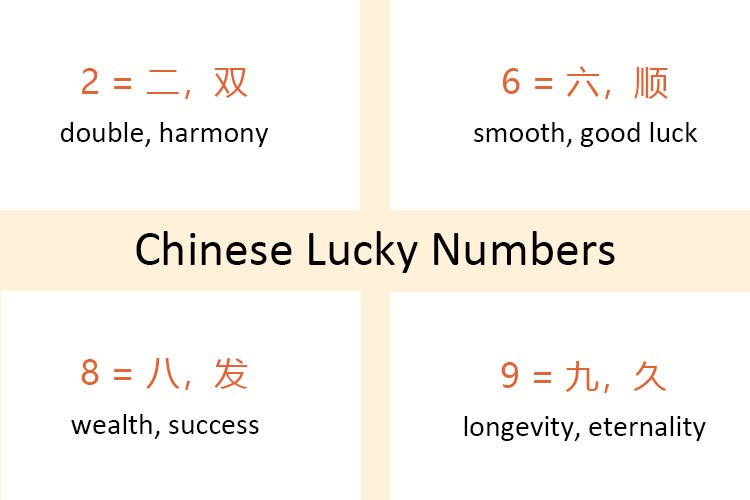From my link above:
Unlucky Number 4
4 in China (and in Korea, Japan, and Vietnam) is considered terribly unlucky because it sounds like the word for “death”.
It is really a bad idea to assign the number 4 to anything. Generally, door numbers and car registration numbers do not contain any 4s, especially not in the last digit place.
The Unlucky Number 7
7 pronounces in Chinese similar to the pronunciation of the word meaning gone. 7 also relates to ceremonies that release dead souls from purgatory. In some parts of China, the 14th or 15th of the 7th month in the Chinese lunar calendar is the Ghost Festival, the date for holding sacrificial ceremonies.
Neutral Numbers: Safe Numbers
Chinese number 1
It is often associated with the meanings united, beginning, independent, complete, and infinite.
Chinese Number 3
In feng shui, 3 has a natural resonance in terms of beginning, middle, and end; introduction, development, and conclusion.
You can see this number widely used in Chinese culture: the Three Gorges, the Three Kingdoms in Chinese history, and the three halls of the Forbidden City in Beijing.
Chinese Number 5
5 has been used to classify many things in Chinese, such as the five elements in astrology, the senses, and the basic colors. It is a neutral number. In feng shui, the 5th level of life sometimes means the best.

 www.dw.com
www.dw.com






